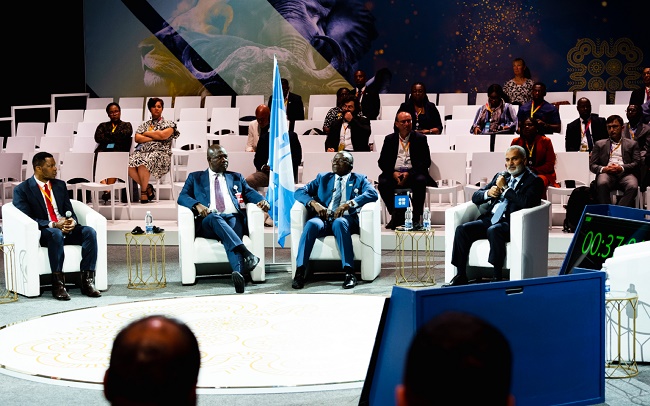When it comes to the climate crisis, the global oil and gas industry is part of the solution, not the problem.

This was emphasised by the Organisation of the Petroleum Exporting Countries (OPEC) roundtable at the African Energy Week: Invest in African Energies 2024 conference in Cape Town, South Africa.
Participants emphasised that, through investments in carbon capture and storage, oil and gas operators can take the lead in reducing global greenhouse gas emissions.
With energy demand projected to increase 24% between now and 2050, the roundtable underscored that prioritising investments in low-carbon technology should be top of the agenda in climate discussions. Effectively, the industry can take a leading role in reducing global greenhouse emissions through investments in carbon capture and storage technology. Collaboration with organisations such as OPEC can accelerate the dual goals of meeting rising demand, while lowering global emissions.
“Our position is that climate negotiations have to take into account the principle of common differentiated responsibilities and respective capabilities. The Paris Agreement (on climate change) is about reducing emissions, not about choosing a source of fuel above another. It is not about leaving fossil fuels in the ground. Oil and gas are not the culprit but part of the solution,” said Haitham Al Ghais, Secretary General of OPEC.
Increasing crude production remains top of the agenda for many African countries. With over 600 million people living without access to electricity and 900 million without access to clean cooking solutions, the development of crude oil reserves stands to meet rising energy demand while driving economic growth.
Heineken Lokpobiri, Minister of State for Petroleum Resources (Oil) of Nigeria, posits that the development of oil and gas can serve as a catalyst for the renewable energy industry.
“For countries in Africa, we cannot be told that we should remain in energy poverty, with the low industrialisation that we have. In order to develop solar, wind and green hydrogen, you need financing. Those energy sources currently have limited investment. Our own ambitions are to see how we can raise the funding required for the energy mix, using fossil fuels,” he said.
Marcel Abeke, Minister of Petroleum of Gabon and President of OPEC, reiterated these remarks, stating: “We should have a unified voice to fight against energy poverty. We have the majority of our population without access to energy, so we need to keep investing in the development of our energies, industries and countries.”
Gabon aims to increase crude output to 500,000 barrels per day (BPD) in the medium- to long-term and is promoting investment in natural gas exploration. The country is committed to leveraging its oil and gas industry to drive economic growth.
“We are inviting investors to come and explore so that we can progressively increase our production. There is not only oil, but there are important gas reserves which have been discovered in Gabon. We are open and would like to invest in this sector so that we can drive growth through the development of this sector,” he added.
